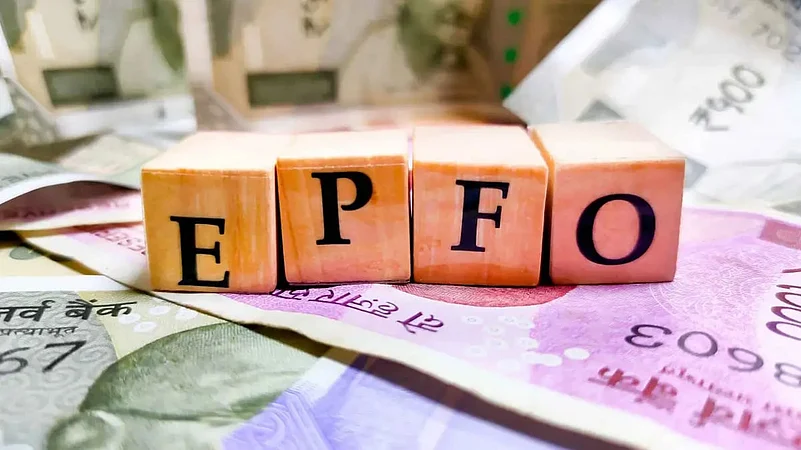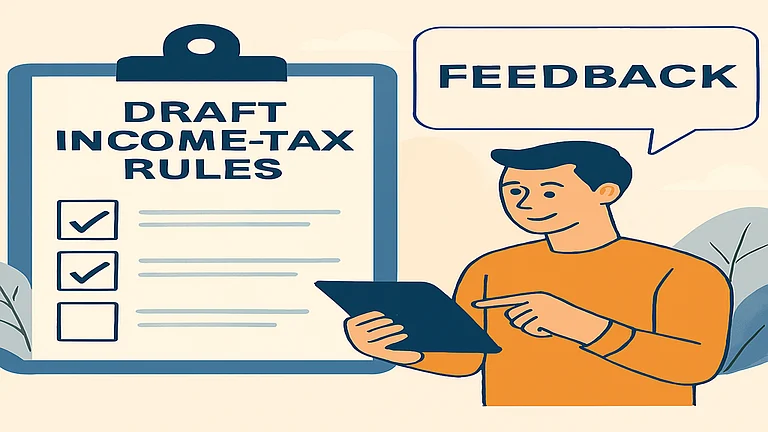With the government declaring a lower interest rate on the Employees’ Provident Fund (EPF) corpus—at 8.1 per cent—for the current financial year 2021–22, your retirement corpus may get a setback. EPF is one of the most popular tools that are used for retirement, thanks to the many benefits it offers, including guaranteed returns and tax efficiency.
The Employees’ Provident Fund Organisation (EPFO) has slashed the rate from 8.5 per cent in FY21. The rate of 8.1 per cent declared for FY22 is the lowest offered by EPFO in over 40 years.
For most private-sector employees, EPF serves as the main tool for retirement planning, which is why the rate announcement is eagerly awaited each year. It is one of the few instruments that facilitates regular investment.
Here is a guide to understanding what EPF is, the benefits it entails, and how to check the EPF balance.
What is EPF?
The EPF scheme is an employee benefit plan where both the employer and the employee contribute 12 per cent each of the employee’s basic salary and dearness allowance towards EPF.
It is mandatory for salaried employees with an income of less than Rs 15,000 per month to register for an EPF account. As per law, it is mandatory for organisations to register for the EPF scheme if they have more than 20 employees working for them.
"Organisations with less than 20 employees can also join the EPF scheme on a voluntary basis." Employees who earn more than Rs 15,000 can also register for an EPF account. However, they must get approval from the Assistant PF Commissioner. "The whole of India (except the states of Jammu and Kashmir) can benefit from the provisions in the EPF scheme," says Shetty.
These rules automatically bring a large number of employees under the EPF net.

Benefits from EPF
What makes it attractive is the fact that the returns from the scheme are guaranteed by the government.
It is also a tax-efficient tool. EPF enjoys the EEE tax status, which means it offers a deduction benefit at the time of contribution under Section 80C of the Income-tax Act, 1961; the interest earned on it is tax-free; and final returns are also tax-free in the hands of the investors.
EPF allows partial withdrawals, subject to certain conditions. You could partially withdraw funds from your EPF account for a medical emergency, purchasing a house, or wedding expenses.
There are several benefits to EPF. While it helps in saving money for the long run, it can also help an employee financially during an emergency. There is no requirement to make a single, lump-sum investment as deductions are made on a monthly basis from the employee’s salary. Over a long period, the scheme helps employees save a large amount of money, "says Adhil Shetty, CEO of Bankbazaar.com.
You could even withdraw the entire PF amount, depending on circumstances such as attainment of your retirement age, resignation due to permanent mental or physical incapacity, permanent relocation to other countries, or the death of the member, among others.
How to Determine Your EPF Balance
There are mainly four ways in which you can check your EPF balance.
First, you could check it through the EPFO member portal. Log in using your UAN and password to find the EPF balance under the member ID.
Second, you could check your balance using the UMANG (Unified Mobile Application for New-Age Governance) app. Apart from checking your balance, you can also raise and track claims through this app.
Third, you could use the missed call service. It is possible to check your EPF balance by giving a missed call to the number 011-22901406, from your registered phone number.
Fourth, you could use an SMS service. If your UAN is activated, you could send an SMS to 7738299899 to find out how much you have in your EPF account.














